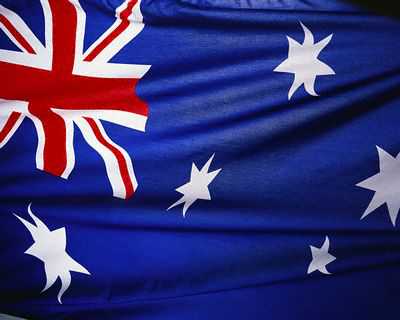 By ZBIGNIEW BRZEZINSKI
By ZBIGNIEW BRZEZINSKI
, January 2, 2011

 By ZBIGNIEW BRZEZINSKI
By ZBIGNIEW BRZEZINSKI
, January 2, 2011

By Charlotte Shipman
 The painstaking craft of hand knotting Turkish rugs is thousands of years old and based thousands of kilometres from these shores.
The painstaking craft of hand knotting Turkish rugs is thousands of years old and based thousands of kilometres from these shores.
But the modern versions of the ancient art have a distinctly kiwi connection.
Throughout the world, Turkish rugs are a highly sought after souvenir. On the streets and in the markets of Istanbul there is a carpet on every corner.
But what most buyers do not know is how much Kiwi’s weave.
“It’s 50 percent New Zealand wool and 50 percent local wool,” says Mustafa Gozne, a wool importer.
Gozne has been getting his wool from New Zealand Wool Services since 1992.
Last year he imported 60 percent of New Zealand wool exports to Turkey – that is nearly two thousand tonnes of wool, worth $7 million.
It is mainly used in machine made carpets, blended with Turkish wool
But 10 percent is used for traditional hand knotted carpets, an art which cheap labour in Pakistan, China and India is threatening to destroy.
“They give the designs, the colours, patterns and they produce Turkish carpet but not in Turkey,” says Gozne.
Hand knotting carpet is extremely labour intensive. Each square metre has 360 knots and takes more than a month to complete.
Our wool is valued for being readily available and having a consistent texture.
“When you use this wool you will not have any headache. I mean the quality during the dying and the knotting,” says Gozne.
There is only one problem – customers do not realise the secret of the rugs and do not give New Zealand credit.
“They wouldn’t really have great understanding that it’s always coming from New Zealand which is something we are looking to change throughout the world,” says Paul Steel from NZ wool services.
But awareness is growing.
Twenty years a go, hand knotted carpet manufacturers did not know anything about New Zealand wool. Now it is synonymous with quality
Of the millions of tourists who visit Turkey every year, some are leaving with a small piece of New Zealand.
3 News
via Turkish souvenirs made in New Zealand – Story – Business – 3 News.

Kyodo News
Japan and Turkey agreed Friday to reach a “certain conclusion” in about three months on whether Japan will build a nuclear power plant on the Black Sea coast, an industry ministry official said.
 Building ties: Economy, Trade and Industry Minister Akihiro Ohata and visiting Turkish Energy and Natural Resources Minister Taner Yildiz field questions at a Friday news conference in Tokyo. KYODO PHOTO
Building ties: Economy, Trade and Industry Minister Akihiro Ohata and visiting Turkish Energy and Natural Resources Minister Taner Yildiz field questions at a Friday news conference in Tokyo. KYODO PHOTO
The agreement was reached during talks in Tokyo between Economy, Trade and Industry Minister Akihiro Ohata and visiting Turkish Energy and Natural Resources Minister Taner Yildiz, who also signed a memorandum on civil nuclear cooperation in the development of human resources and other areas.
At a joint news conference after the talks, Ohata pitched Japan’s nuclear power technologies as safe and earthquake-resistant, while the Turkish minister seemed eager to seek cooperation.
“We are expecting that the construction of a nuclear power plant in Turkey could be achieved under the cooperation of both the public and private sectors of the two countries,” Yildiz said.
Japan has been trying to export its nuclear power technologies. But there is no guarantee negotiations with Turkey will go smoothly.
via Turkey nuke decision due by March | The Japan Times Online.

By Tsuyoshi Inajima
(Updates minister’s comments in third paragraph.)
Dec. 23 (Bloomberg) — Turkey is holding exclusive talks with Japan to build its second nuclear power plant after failing to reach an agreement with South Korea.
Turkey aims to conclude a deal with Japan in three months, Energy Minister Taner Yildiz said today in an interview in Tokyo. Yildiz is due to hold talks with Toshiba Corp., Tokyo Electric Power Co. and Itochu Corp.
South Korea and Turkey failed to reach an agreement to build a nuclear power plant in Sinop on the Black Sea coast because of “differences in issues including electricity sales price,” South Korea’s Ministry of Knowledge Economy said Nov. 13. Japan, which won a nuclear plant contract in Vietnam in October, plans to spur economic growth by exporting more nuclear reactors and technology products.
“We have some targets to recover the time we have lost” to build the nuclear plant, Yildiz said. “Within three months, main frameworks should be determined,” including financing, treasury, insurance, partnerships and power tariffs, he said.
Yildiz said his visit to Japan comes after officials from Toshiba and the Japanese government held two rounds of technical meetings in Turkey on the project. “They told us their first impression is quite positive,” he said.
Turkey received an offer from Japan to build a nuclear plant in the country, CNBC-e television said on Oct. 7, citing Yildiz. The offer is an “aggressive one,” the Istanbul-based news channel cited the minister as saying then.
‘More Aggressive’
“Major players including Japan are getting more aggressive in the global nuclear market after they were beaten by South Korea last year to the United Arab Emirates’ $18.6 billion order,” said Shin Min Seok, an analyst at Daewoo Securities Co. in Seoul.
South Korea emerged as a competitor in the global nuclear market after Korea Electric Power Corp. beat General Electric Co. and Areva SA in December last year to the U.A.E. order.
Yildiz and his Japanese counterpart Akihiro Ohata are due to sign a memorandum of understanding on nuclear power cooperation tomorrow, Japan’s trade ministry said in a statement yesterday.
On Dec. 25, the Turkish minister is scheduled to visit Tokyo Electric’s Kashiwazaki Kariwa nuclear power plant, the world’s biggest atomic power station, according to an e-mailed statement by the ministry. Tokyo Electric officials including Executive Vice President Sakae Muto will meet Yildiz at the plant in northern Japan, company spokesman Norio Takahashi said by telephone today.
Calls to the offices of the spokesmen for Toshiba and Itochu weren’t answered as businesses and markets are shut for a public holiday today. An Itochu spokesman didn’t immediately respond to a voice message seeking comment left on his mobile phone.
Russia and Turkey signed a contract in May to build Turkey’s first nuclear power plant with four reactors, at a cost of about $20 billion after more than a year of negotiations. Russia’s Rosatom Corp. will operate the plant in Akkuyu for 60 years, Russian Deputy Prime Minister Igor Sechin said Dec. 15.
“My expectation and hope is that the cost will not be higher than numbers we have been talking with Russia and South Korea,” Yildiz said today.
–With assistance from Shinhye Kang in Seoul. Editors: Amit Prakash, John Viljoen.
To contact the reporter on this story: Tsuyoshi Inajima in Tokyo at [email protected].
To contact the editor responsible for this story: Amit Prakash at [email protected].
via Turkey, Japan in Exclusive Talks for Nuclear Plant – BusinessWeek.
![[Australian] PM orders review of spy bodies 7 [Australian] PM orders review of spy bodies](https://www.turkishnews.com/en/content/wp-content/uploads/2010/12/australia_flag.jpg)
 Dylan Welch
Dylan WelchDecember 24, 2010
http://www.theage.com.au/national/pm-orders-review-of-spy-bodies-20101223-196l8.html, December 24, 20

Turkey may develop fighter aircraft with S Korea, Indonesia
ÜMİT ENGİNSOY
ANKARA – Hürriyet Daily News
Keen to bolster the capabilities of its Air Force, Turkey is interested in developing a new fighter aircraft with South Korea and Indonesia, senior Turkish and South Korean officials have said.
“There have been some preliminary talks about our possible participation in the KF-X program,” a senior Turkish procurement official told the Hürriyet Daily News & Economic Review over the weekend. “We are investigating the feasibility and possibilities of this program.”
Maj. Gen. Choi Cha-kyu, director general of South Korea’s aircraft program bureau at the Defense Acquisition Program Administration, said in September that Ankara was seriously considering taking part in the KF-X program.
“There will be a requirement [in Turkey] to replace the older fighters with newer ones by 2020,” the daily Korea Times quoted Choi as saying at the time. “Once on board, Turkey is expected to bear the same amount of development costs as Indonesia.”
The KF-X is a mainly South Korean program to develop an advanced multi-role fighter for the Air Forces of South Korea and Indonesia. It originally was launched in 2001, but then postponed because of financial and technological difficulties. The program will start again next year with the consent of budget authorities.
South Korea will provide 60 percent of the KF-X development costs worth some $4.2 billion, with the rest to come from other governments or corporate partners. About 120 KF-Xs would be built initially and more than 130 aircraft would be produced additionally after the first-phase models reach operational capability.
Under a memorandum of understanding signed in mid-July, Indonesia agreed to pay 20 percent of the bill and to buy about 50 KF-X planes when mass production begins.
South Korea also is seeking to receive technology transfers from Western aerospace firms. One possible corporate partner is Sweden’s Saab.
Other options
Turkey already has selected the U.S.-led F-35 Joint Strike Fighter Lightning II as its next-generation fighter aircraft type. It plans to buy about 100 F-35 aircraft worth nearly $15 billion. Many Turkish companies are members of the nine-nation Joint Strike Fighter consortium of nine Western nations, and are producing parts for the aircraft.
Lockheed Martin, the U.S. company leading the Joint Strike Fighter program, wants Turkey to increase the number of F-35 planes it plans to buy to 120 from 100. Turkey also will receive 30 F-16 Block 50 fighters from Lockheed as a stop-gap solution until F-35 deliveries begin around 2015.
But Turkish officials have said they are open to participating in one more future international fighter aircraft program.
Turkey also is facing pressure from Italy, a close defense partner, to buy the Eurofighter Typhoon, made by a European consortium including companies from Italy, Britain, Germany and Spain.
Giovanni Bertolone, executive vice president for operations at Finmeccanica, a top Italian industrial conglomerate, in early December called on Turkey to jointly produce the next phase of the Eurofighter. Finmeccanica is the parent company of Alenia Aeronautica, one of the makers of the Eurofighter.
Bertolone said the F-35 and the Eurofighter had different functions, and that Turkey could accommodate both fighters. The Eurofighter has been designed mainly as an air-to-air fighter while the F-35 is more suitable for air-to-ground missions.
In the event Turkey decides to buy the Eurofighter, these aircraft would replace the older U.S.-made F-4E Phantoms, recently modernized by Israel.
“We’re encouraging Turkey to follow the examples of Britain and Italy, which will have both aircraft,” Bertolone said. “Air-to-air fight capability is important, and we think this situation will gain prominence.”
Many analysts believe that the planned South Korean-led KF-X also would be suitable for air-to-air fighting.